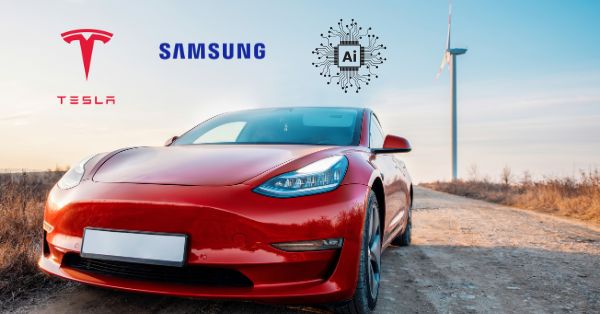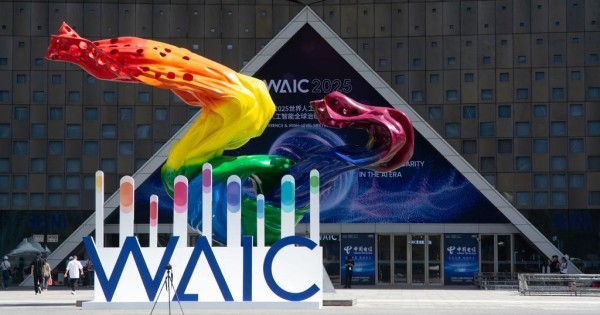South Korea is set to become a major AI powerhouse as SK Group and AWS join forces to build the country’s largest AI data center. The massive facility, slated for Ulsan, marks the biggest corporate investment since President Lee Jae Myung took office and reflects South Korea’s ambition to lead in the global AI race.
A Strategic Partnership for AI Leadership
The collaboration brings together SK Group’s deep expertise in semiconductors, telecommunications, and energy with AWS’s robust AI and cloud infrastructure services. This synergy aims to create an advanced AI ecosystem capable of supporting the explosive demand for generative AI and related technologies.
Under the agreement, the total investment for the data center will reach 7 trillion won, roughly $5.13 billion. AWS will contribute $4 billion, while SK Group covers the remainder. This initiative is a cornerstone of SK Telecom’s “AI Infrastructure Superhighway” strategy, designed to lay the groundwork for hyperscale AI capabilities in South Korea.
Key Specifications of the Ulsan AI Data Center
- Location: Ulsan’s Mipo National Industrial Complex was selected for its robust energy network and supportive industrial environment. The site benefits from proximity to an SK Gas LNG power plant, ensuring a steady power supply essential for AI workloads.
- Capacity: The facility will launch with an initial power capacity of 103 megawatts (MW), scalable to an impressive 1 gigawatt (GW).
- GPU Power: It will house an initial fleet of 60,000 GPUs, marking the largest GPU deployment in a Korean data center to date.
- Timeline: Construction is scheduled to start in August 2025. The first phase should be ready by November 2027, with the full capacity operational by February 2029.
- Job Creation: The project is expected to create up to 78,000 direct and indirect jobs as operations expand, providing a significant economic boost to the region.
- Boosting South Korea’s Data Sovereignty
One of the key benefits of this project is enhancing South Korea’s data sovereignty. By processing AI workloads domestically, sensitive data remains within national borders, improving security and compliance with local regulations. This strengthens South Korea’s competitiveness in global AI development and protects valuable intellectual property.
Prasad Kalyanaraman, AWS Vice President of Infrastructure Services, highlighted this advantage: “When SK Group’s technical strengths combine with AWS’s comprehensive AI cloud services, we empower businesses across Korea to build secure AI technologies. This partnership reflects our commitment to Korea’s AI future.”
Creating an AI Hub for Asia
The Ulsan facility will not only serve local businesses but also attract international companies looking for advanced AI infrastructure in Asia. By combining state-of-the-art compute, storage, database, and edge computing capabilities, the data center is positioned to handle complex AI models, including generative AI, large language models (LLMs), and real-time analytics.
The initiative also aligns with AWS’s broader commitment to South Korea, adding to its long-term $5.88 billion planned investment in the country through 2027.
AI Infrastructure Superhighway: A Vision for the Future
SK Telecom’s AI Infrastructure Superhighway strategy aims to provide high-performance AI resources that meet the growing demand for next-generation digital services. This includes support for emerging applications in IoT, smart manufacturing, autonomous vehicles, and immersive technologies like AR and the Metaverse.
By establishing hyperscale data centers and high-speed network connections nationwide, SK Group intends to build an integrated infrastructure backbone to accelerate digital transformation for Korean industries.
Government Support and National Ambitions
The South Korean government has pledged full support for the project, recognizing AI as a key growth engine. President Lee Jae Myung attended the signing ceremony and emphasized that the administration will actively foster AI adoption to ensure sustained economic growth.
“The new government will make every effort to actively support Korea in adopting AI as a new national growth engine so that the country can once again leap forward as a dynamic, growing nation,” President Lee stated.
A Milestone for South Korea’s AI Ecosystem
The SK Group and AWS partnership is a clear signal of South Korea’s commitment to invest in the critical infrastructure needed to remain competitive in the global AI market. By building the nation’s largest AI data center, the country is laying the groundwork for a future where AI-powered innovation drives new industries, creates high-quality jobs, and secures its place as a technological leader in Asia and beyond.
For businesses and tech leaders, this new AI hub in Ulsan represents an opportunity to harness cutting-edge cloud and AI capabilities without leaving the country’s borders. As construction progresses, South Korea’s AI Infrastructure Superhighway promises to deliver tangible benefits for years to come.
Stay tuned for updates as SK Group and AWS break ground on this transformative project in August 2025, setting South Korea on the fast lane of the global AI highway.






























